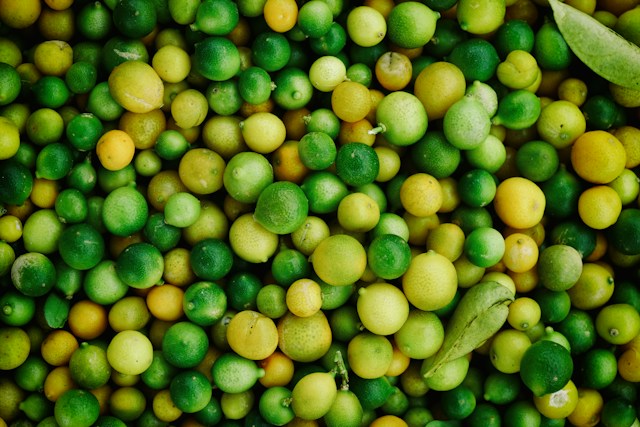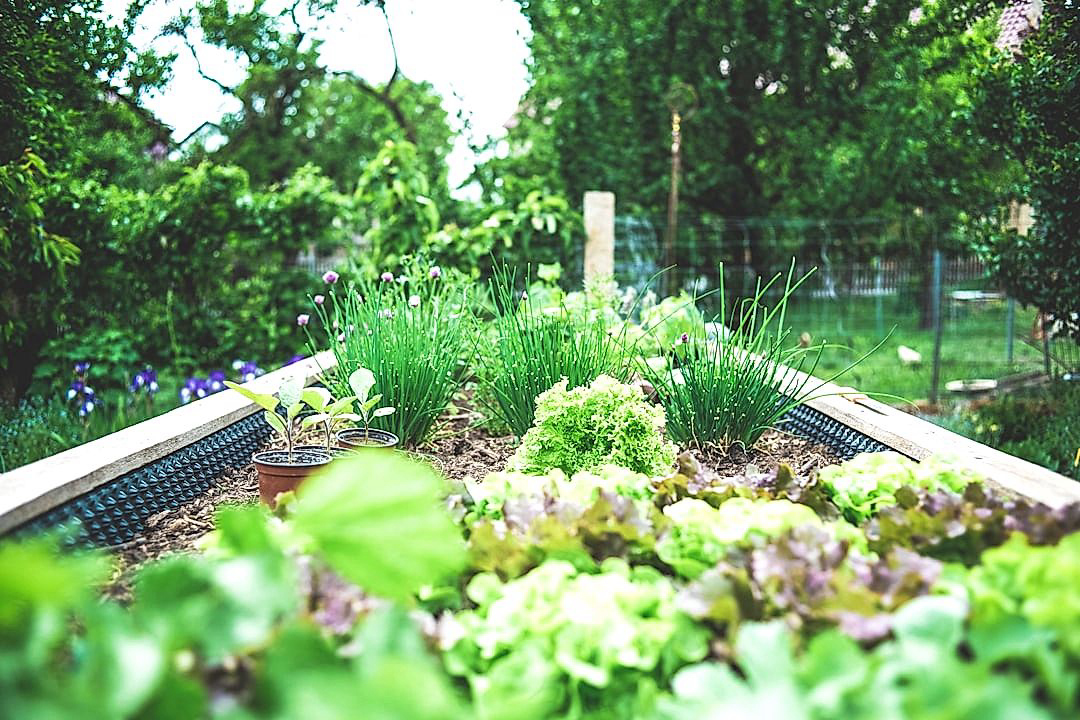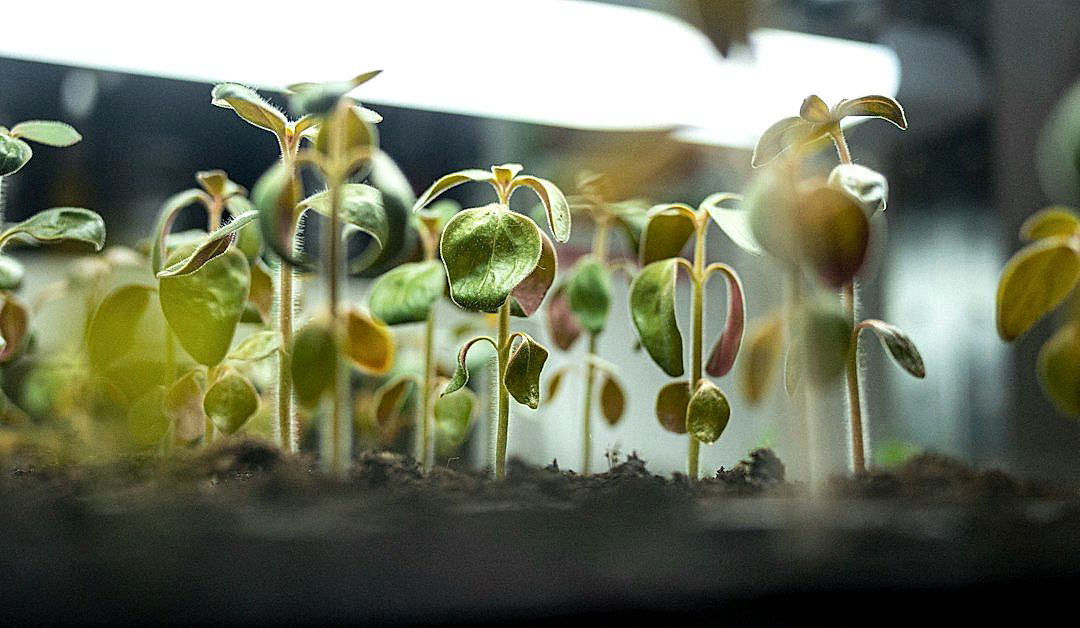In an age where consumers are becoming more conscious of how their food is produced, farm visitations are on the rise.
Agrotourism presents a unique opportunity for fruit and vegetable growers to diversify their income streams and interact directly with their customers.
While this might seem like a novel concept, many growers are already embracing this idea with promising results.
It is not just about selling produce; it is about selling an experience.
The following suggestions will delve into how to successfully incorporate agrotourism into your farming operations.
Never underestimate the allure of learning, fresh food, and the great outdoors.
Contents
Agrotourism Ideas For Fruit And Vegetable Growers
1. U-Pick Fruit and Vegetable Experience
There’s a unique joy that comes from visiting a farm and picking your own fruits and vegetables.
This practice, known as U-Pick, allows participants to walk through the farm fields and orchards, identifying and picking the ripe produce they’d like to take home.
For many, it’s an opportunity to connect with the source of their food, a chance to appreciate the labor that goes into growing and harvesting their fruits and vegetables.
At the heart of a U-Pick fruit and vegetable experience is the bounty of fresh, ripe produce that’s ready to be harvested.
This experience has been embraced by a variety of farms, from small family-owned ones to larger operations, all offering an array of different fruits and vegetables for visitors to pick.
For the fruit farmers, the U-Pick practice can include a range of different products, such as apples, strawberries, cherries, and peaches, depending on the season and the climate of the area.
Similarly, vegetable growers might offer an assortment of crops, such as tomatoes, peppers, sweet corn, cucumbers, and pumpkins, again depending on the growth seasons and what grows best in their region.
Importantly, the U-Pick experience also provides an excellent opportunity for educating visitors about farming practices, growing conditions, and the seasonal nature of food production.
Moreover, many farmers find that this practice not only connects people to the food they eat but also promotes a better appreciation for the hard work and dedication required by farming.
This encourages more sustainable food choices and gives visitors a newfound respect for the farm-to-table journey of their food.
Many farmers also offer U-Pick as an additional sources of revenue during both the primary growing seasons and the shoulder seasons, when fewer crops may be available but some fruits or vegetables are still maturing.
Visitors often love these experiences because they offer the chance to be outside, get their hands dirty, and leave with a big bounty of fresh, locally grown produce.
These experiences can be tailored to any type of visitor, from families with young children to couples on romantic getaways, and can be promoted through a variety of channels, including social media, local tourism boards, and word-of-mouth.
Ultimately, a U-Pick fruit and vegetable experience is an engaging and hands-on way for visitors to learn more about agriculture and how their choices impact the environment and their community.
So, if you’re a fruit or vegetable grower looking for ways to promote agrotourism on your farm, consider offering this fun and educational opportunity to your visitors.
2. Farm-to-Table Cooking Classes
Many people have a deep appreciation for natural, fresh food but may feel overwhelmed when it comes to preparing meals with it. Farm-to-table cooking classes can bridge this gap and turn an agrotourism visit into an empowering, enriching experience.
These classes usually incorporate freshly harvested produce from the farm, ensuring that visitors receive the freshest possible ingredients.
Initiating a session with a field tour where participants pick their own ingredients can enhance the entire learning experience.
By using the farming backdrop, participants get to appreciate the full lifecycle of food; from the planting and harvesting to the preparation and consumption.
This practical introduction to seasonal eating helps people understand the importance of sustainable farming and local sourcing.
Teaching participants about different vegetable varieties, their growth patterns, and the correct time to harvest can add a layer of education to the class.
Additionally, it can also reveal the breadth and depth of flavor available in freshly picked, ripened-on-the-plant produce.
The dishes prepared during these classes are usually traditional and representative of the region’s culture, providing a unique culinary experience.
Aside from cooking, these classes can delve into topics like food preservation techniques, composting, and organic farming.
Interactive demonstrations and tasks can be designed for both adults and children, ensuring that families can enjoy this activity together.
Commercial kitchens or open-air cooking spaces within the farm can be utilized for these classes, setting a rustic, authentic atmosphere for the participants.
Furthermore, providing participants with recipes and produce to take home can extend this experience beyond the farm, encouraging a continued relationship with farm-to-table food.
Partnering with local chefs may lend credibility to these classes as well as offer a platform to showcase local culinary talent.
Farm-to-table cooking classes can be an excellent opportunity for farms to foster community connections, promote local businesses, and enhance visitors’ agrotourism experience.
Undoubtedly, these classes hold great potential to build loyalty, patronage, and repeat visits amongst an increasingly food-conscious public.
3. Seasonal Harvest Festivals
Fruit and vegetable growers often celebrate the bounties of their harvest through seasonal harvest festivals.
These events not only create a buzz around the season’s produce but also impart a sense of community among attendees.
These festivals can be an asset for agrotourism, drawing crowds from both nearby and far off places.
They offer a wonderful opportunity for visitors to immerse themselves in the local culture while enjoying the freshest fruits and vegetables.
Hosting a harvest festival entails meticulous planning and can prove to be a powerful platform for showcasing the farm’s produce.
Fruit and vegetable growers can collaborate with local artisans, musicians, and food vendors to create a memorable and attractive event.
Such collaborations not only enhance the overall appeal of the festival, but also contribute to the local economy.
Harvest festivals can also include entertaining activities like pumpkin carving, apple bobbing, corn mazes, and hayrides.
They can even extend to include cook-offs using the farm’s produce and other contests to engage attendees.
These activities not only carve out a fun-filled day for visitors but also enhance their overall farm experience.
Moreover, visitors can take back baskets of the farm’s produce, reinforcing the freshness and quality of the growers’ products.
Seasonal recipes using the farm’s produce can be shared, fostering a sense of direct connection between the food consumed and its source.
This can set the foundation for attendees to become loyal customers, further promoting the agrotourism business.
Growers should ensure that the event is effectively communicated through public relations efforts and social media channels.
This helps in attracting a larger audience and enhancing the festival’s success.
Also, it is important to consider the logistics of the event, ensuring that visitors have an enjoyable and hassle-free experience.
Thus, successful seasonal harvest festivals can significantly contribute to the growth of agrotourism for fruit and vegetable growers.
4. Wine and Cider Tasting Events
For fruit and vegetable growers looking to expand their agrotourism offerings, hosting wine and cider tasting events could be just the ticket.
This can provide an interactive and educational experience for visitors, who get the opportunity to sample different varieties of locally produced wine and cider.
These tasting events are also a great opportunity to showcase the variety and quality of produce that your farm is capable of producing.
They also provide a unique platform for promoting the use of homegrown fruits in the creation of these beverages.
Whether you grow apples, pears, grapes, or other fruits, turning them into wine or cider provides an inventive way to utilize your produce and add value to your output.
The key to a successful wine and cider tasting event lies not just in the quality of the beverages, but also in creating a memorable experience for your guests.
This could be achieved through themed tastings, involving local musicians for entertainment, or arranging food pairings to complement the flavours of your beverages.
Moreover, it’s important to remember to provide an informative session about each beverage, including details about the fruit that was used, the production process, and the unique flavors that visitors should look for.
By engaging your visitors in this way, you are not only selling your products but also sharing the story of your farm and the passion behind your produce.
You can also consider offering private tasting sessions for visitors who want a more intimate and personalized experience.
Perhaps even the possibility of a blending workshop, where they might get to mix their own personalized bottle of wine or cider.
After all, engaging with customers on this level helps build a loyal customer base and can encourage repeat visits.
While planning these events, be sure to cater to different audience interests and preferences.
For instance, you could host separate events for wine connoisseurs, cider enthusiasts, and people interested in sustainable agriculture and local food systems.
It’s key to keep your events dynamic and exciting, adapting to the seasons as different fruits become ripe for harvest, creating a sense of anticipation for your next offering.
Overall, wine and cider tasting events could be a profitable addition that brings more people to your farm, promotes your produce and shares your passion for agriculture with a broader audience.
5. Farmers Market Stalls
One significant way to encourage agrotourism for fruit and vegetable growers is through the setup of Farmers Market Stalls.
These stalls, located ideally in strategic areas of high foot traffic, present the perfect platform to showcase the best of what your farm has to offer.
Farmers Market Stalls are not just spaces for selling fruits and vegetables, they are platforms where growers can interact directly with consumers, educating them about the various produce and the processes involved in their growth and harvest.
This type of direct marketing not only boosts sales but also enhances customer relations and creates a brand identity for your farm products.
Setting up a stall at a Farmers Market might be daunting initially, especially considering the logistics and the initial investment in time and money.
However, once in place, the rewards can be incredibly vinculante, creating a consistent customer base and potentially higher profit margins than conventional sales methods.
It’s vital that your stall is visually appealing, with attractive displays of your freshest fruits and vegetables that encapsulate the essence of your farm.
Consider using rustic, farm-themed decorative elements to enhance the aesthetics and consistency of your brand image.
Furthermore, engage potential customers with friendly and knowledgeable sales staff who can answer various questions about different produce and farming practices.
As a value addition, you may also sell farm-made products, such as jams, jellies, or pickles made from your produce, to provide a unique offering beyond the fruits and vegetables themselves.
Additionally, these stalls also present an opportunity for growers to receive direct feedback from consumers, a vital aspect of continuously improving the quality and variety of produce offered.
Moreover, the stall could also serve as a platform to promote other agrotourism activities on your farm, such as U-Pick Fruit and Vegetable Experiences, or Farm-to-Table Cooking Classes.
Farmers Market Stalls are a potential goldmine for fruit and vegetable growers looking to dip their toes into the increasingly popular world of agrotourism.
With careful planning and execution, they can offer an impactful and rewarding strategy, fostering a strong bond between growers and consumers, and contributing significantly to local, sustainable economies.
6. Educational Farm Tours
As part of the agrotourism adventure, educational farm tours play a significant role in teaching visitors about the processes that take place on a fruit and vegetable farm.
Having knowledgeable guides on these tours is crucial, as they are responsible for imparting information about the farming practices, the seasonal crops, and the importance of sustainable agriculture.
Depending on the size of the farm, these tours can either be walking tours or involve some form of transportation, like tractors or horse-drawn wagons.
Incorporating various activities in the tour such as tasting fresh produce, sowing seeds or harvesting fruits and vegetables not only make it interactive but also provide a hands-on farming experience.
When children are involved, it becomes a perfect opportunity to help them understand the value of locally grown food and appreciate the hard work that goes into farming.
These tours can also be a great chance for the farmer to showcase their produce, discuss the nutritional benefits of different foods, and give cooking tips.
From an educational perspective, these tours can encompass lessons on botany, biology, and even weather patterns as they apply to farming.
Visitors can be shown the various machinery and technology used in farming as well, offering insight into modern farming methods.
It can also be beneficial to demonstrate different farming practices – organic, conventional, and sustainable – giving the visitors a well-rounded understanding of agriculture.
It’s a good idea to provide visitors with take-home resources such as pamphlets or booklets detailing what they learned during the tour, adding an extra touch to their educational experience.
Providing an opportunity for visitors to interact with farm animals can also add an extra layer of interest, particularly for younger visitors.
Having interactive activities like scavenger hunts, picking contests, or planting workshops can turn the tour into an entertaining learning journey.
This visit can easily turn into an unforgettable experience if the visitors are given a chance to experience unusual fruits or vegetables that aren’t commonly found in supermarkets, expanding their culinary horizons.
An educational farm tour can be mutually beneficial, it offers a unique experience for the visitor, introduces them to new foods, gives them a better understanding of farming, and provides the farmer with a platform to showcase their hard work and produce.
With the ever-increasing interest in local, organic, and sustainable food, offering educational farm tours can be a great way for fruit and vegetable growers to expand their business and connect with the community.
7. Overnight Farm Stays
One innovative and captivating concept in agrotourism is the experience of overnight farm stays.
This particular experience offers an authentic insight into the day-to-day life of a fruit and vegetable grower.
Visitors get an opportunity to participate, observe and understand the nuances of agriculture in a very personal and detailed manner.
As guests at the farm, tourists experience first hand the peace and tranquility that a farm environment offers.
Overnight farm stays provide the unique opportunity to experience agriculture up close and personal, removing us from the fast-paced city life and bringing us closer to nature.
They present a great way to immerse in the rural lifestyle and foster a deeper appreciation for farming.
Staying at a farm means waking up to the sounds of roosters, breathing in the fresh country air, indulging in farm fresh breakfasts, and having the option to participate in farm activities like feeding animals, milking cows, or picking fresh fruits and vegetables.
It becomes a wholesome family experience where each member, from children to adults, finds something to connect with.
Furthermore, such farm stays encourage sustainable tourism by promoting local culture and supporting local farmers.
This organic farm experience not only provides a unique lodging option, but it also allows visitors to understand the hard work, patience, and passion that goes into farming.
Overnight farm stays often feature accommodations ranging from comfortable farm cottages and rustic barns to luxury farmhouses, offering options for all budgets and preferences.
Many of these stays also have farm-to-table dining options where meals are prepared using the farm’s own produce, giving visitors a taste of the hyper-local cuisine.
Moreover, they are a great way for farmers to diversify their income and offer something unique to the ever-growing agrotourism market.
Overnight farm stays are not just stays but an experience in itself that reconnects us with mother nature while creating beautiful memories.
For fruit and vegetable growers eager to share the beauty of their craft and land, offering overnight farm stays can provide a unique platform for doing so.
The Bottom Line
Agro-tourism embraces an array of experiences, from do-it-yourself fruit and vegetable picking to farm-to-table cooking classes.
Furthermore, seasonal harvest festivals provide an annual celebration of farming life, while wine and cider tasting events offer a distinctive and authentically rural touch.
Individuals can also immerse themselves in the agricultural world through farmers market stalls and educational farm tours.
And for those seeking an extended immersion, overnight farm stays promise a delightful union of charm, tranquility and raw beauty.
These activities not only support local economies and sustainable agriculture but also provide an enriching, educational, and unique taste of rural life.




